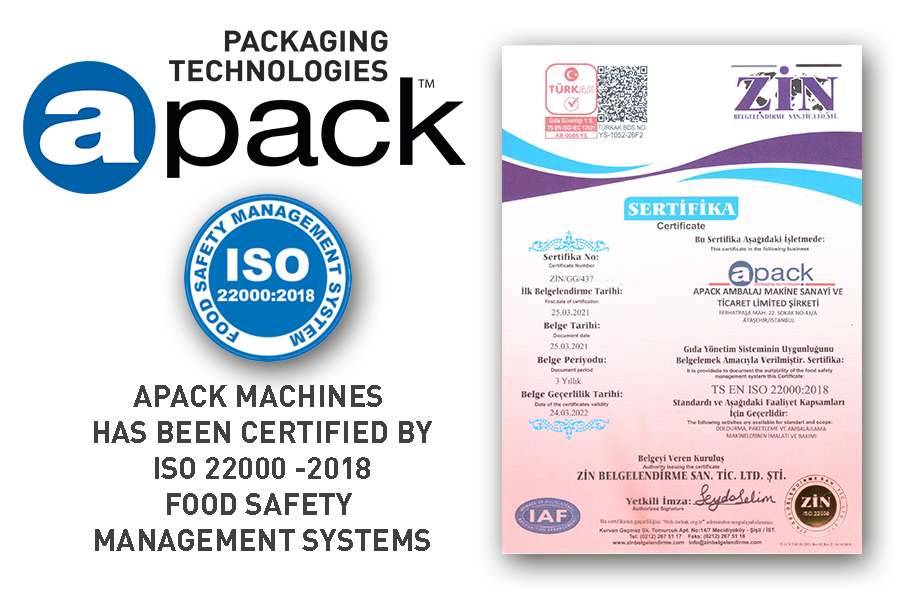

FOOD SAFETY MANAGEMENT SYSTEM

APACK Machineries certified by ISO 22000 Food Safety And Management Systems.
Whatever their size, or product, all food producers have a responsibility to manage the safety of their products and the well-being of their consumers. That’s why ISO 22000 exists.
The consequences of unsafe food can be serious. ISO’s food safety management standards help organizations identify and control food safety hazards, at the same time as working together with other ISO management standards, such as ISO 9001. Applicable to all types of producer, ISO 22000 provides a layer of reassurance within the global food supply chain, helping products cross borders and bringing people food that they can trust.
ISO 22000 sets out the requirements for a food safety management system and can be certified to it. It maps out what an organization needs to do to demonstrate its ability to control food safety hazards in order to ensure that food is safe. It can be used by any organization regardless of its size or position in the food chain.
This document specifies requirements for a food safety management system (FSMS) to enable an organization that is directly or indirectly involved in the food chain:
a) to plan, implement, operate, maintain and update a FSMS providing products and services that are safe, in accordance with their intended use;
b) to demonstrate compliance with applicable statutory and regulatory food safety requirements;
c) to evaluate and assess mutually agreed customer food safety requirements and to demonstrate conformity with them;
d) to effectively communicate food safety issues to interested parties within the food chain;
e) to ensure that the organization conforms to its stated food safety policy;
f) to demonstrate conformity to relevant interested parties;
g) to seek certification or registration of its FSMS by an external organization, or make a self-assessment or self-declaration of conformity to this document.
All requirements of this document are generic and are intended to be applicable to all organizations in the food chain, regardless of size and complexity. Organizations that are directly or indirectly involved include, but are not limited to, feed producers, animal food producers, harvesters of wild plants and animals, farmers, producers of ingredients, food manufacturers, retailers, and organizations providing food services, catering services, cleaning and sanitation services, transportation, storage and distribution services, suppliers of equipment, cleaning and disinfectants, packaging materials and other food contact materials.
This document allows any organization, including small and/or less developed organizations (e.g. a small farm, a small packer-distributor, a small retail or food service outlet) to implement externally-developed elements in their FSMS.
Internal and/or external resources can be used to meet the requirements of this document.